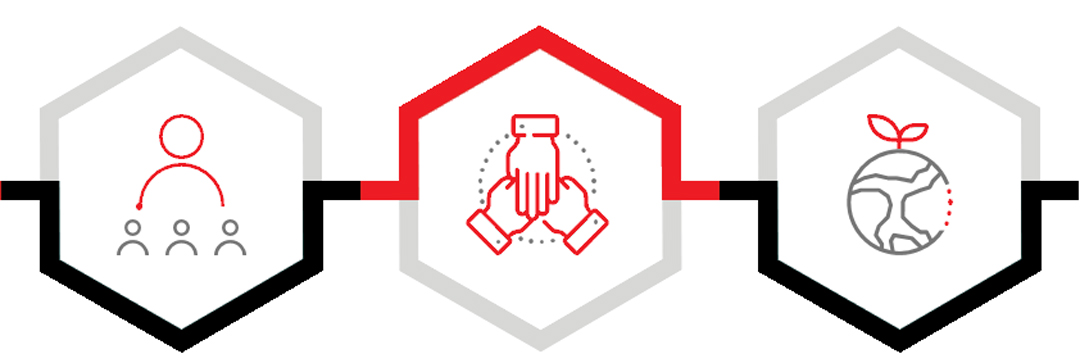Circular Economy
Transitioning to the Circular Economy is critical to ease demand on our planet’s natural resources and deliver sustainable economic growth. Regenerative by design, the Circular Economy minimises waste while providing a new world of opportunity for investors where preservation drives prosperity.
What is a Circular Economy?
The demand on our planet’s natural resources is unsustainable*.
Feeding into the desire for positive change, the Circular Economy helps conserve and optimize finite resources while opening up investment opportunities and delivering sustainable economic growth.
*Data as at April 2020. Source: Message for Earth Day 2020
Circular economy
Why should we act now?

*Data as at April 2020. Source: Message for Earth Day 2020
Current linear model: take, make, use, waste

|
|
Exhaustion of natural resources and water pollution
|
|
|
Soaring CO2 emissions and waste
|
|
|
Deterioration of Biodiversity and living conditions
|
All stakeholders are now embracing the circular economy transition

Regulations and Governments worldwide are moving fast forward on Circular Economy
|
Society calls for action…
|
Investors and companies are ready for circular economy integration
|
1: January 2022, Visualized: The Circular Economy 101
2: June 2019, Plastic pollution facts and information
3: June 2022, Climate Change - United Nations Sustainable Development
4: May 2022, Waste and recycling
*IPCC = Intergovernmental Panel on Climate Change, **KPIs = Key Performance Indicators Source: HSBC Asset Management. June 2022. The commentary and analysis presented in this document reflect the opinion of HSBC Asset Management on the markets, according to the information available to date. They do not constitute any kind of commitment from HSBC Asset Management.
Circular Economy helps resolve the world’s most pressing challenges
Circular Economy delivers on several UN Sustainable Goals, especially:

Goal 12: Responsible Consumption and Production
Every second, the equivalent of a rubbish truck load of clothes is burnt or buried in landfill.
 In a circular economy for fashion, products are used more, made from safe and recycled or renewable inputs, “made to be remade”, recycled or composted. Hazardous substances to health or the environment are designed out3.
In a circular economy for fashion, products are used more, made from safe and recycled or renewable inputs, “made to be remade”, recycled or composted. Hazardous substances to health or the environment are designed out3.Goal 6: Clean Water & Sanitation
72 per cent of all water withdrawals are used by agriculture4. The most impacted regions (West Asia, Pacific) export scarce water through food and cotton products to net importers like Europe and North America.
 Efficient textile and food production means massive decrease in water stress in Asia.
Efficient textile and food production means massive decrease in water stress in Asia.
1: January 2022, Visualized: The Circular Economy 101
2: The Global Circularity Report 2021
3: Source: Fashion and a circular economy | Ellen MacArthur Foundation
4: February 2021, Scarcity | UN-Water
Source: HSBC Asset Management, June 2022. The commentary and analysis presented in this document reflect the opinion of HSBC Asset Management on the markets, according to the information available to date. They do not constitute any kind of commitment from HSBC Asset Management.
The value of investments and any income from them can go down as well as up and investors may not get back the amount originally invested. Past performance is not a reliable indicator of future performance. Any views and opinions expressed are subject to change without notice. Any forecast, projection or target where provided is indicative only and is not guaranteed in any way. We accept no liability for any failure to meet such forecast, projection or target. This page is prepared for general information purposes only and does not have any regard to the specific investment objectives, financial situation and the particular needs of any specific person who may receive it. Any views and opinions expressed are subject to change without notice. This document does not constitute an offering document and should not be construed as a recommendation, an offer to sell or the solicitation of an offer to purchase or subscribe to any investment.




